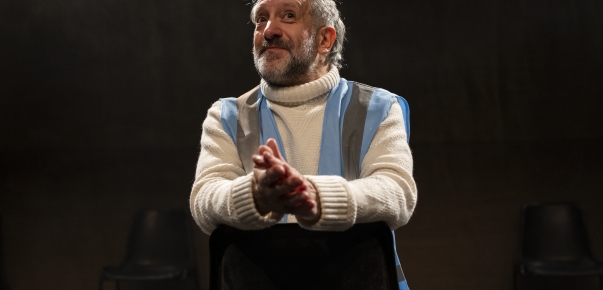An Interview with Glen Neath, writer of Ring
12 Oct 2012Can you tell us a bit about the background of Ring? What made you want to write a play where audience members sit in the dark for an hour?
David approached me with the idea of writing a play that placed the audience in the dark and at the centre of the action. The technology the show employs made it possible to transport the audience to any location we wanted to, within the limits of the imagination, but I realised soon enough that the piece should be about what we could help the audience to imagine for themselves.
What is the experience of Ring like for the audience?
Sitting in the pitch black for 50 minutes is a very weird experience, maybe unsettling to begin with but then strangely comforting (I find). There is a tendency to begin 'seeing' things and it has been interesting to hear how audiences so far have variously interpreted the material presented to them. The most surprised thing is how much of a communal experience it has turned out to be. Although you don't see your fellow audience members again after the lights have gone down you feel you are very much a part of the group.
The audience is placed at the centre of attention in the show. What made you decide to make their role so prominent?
I'm interested in questioning the identity of the narrator in every story. In my novel The Fat Plan a third person sort of ran away with the first person narrative half way through the story... I wondered if the reader would be happy to follow a second voice. At times Ring makes use of the second person narrative 'you', which is something else I have been experimenting with.
How does Ring compare to other plays you have written?
Ring is very much an extension of my previous shows. In Romcom the performers knew only as much about what they were going to say and do as the audience watching them; they learnt as they went along, which meant they and the audience were very much complicit in the experience. This led on to Hello for Dummies which featured an audience of two people, who also happened to be the performers. Ring I think takes this a step further by attempting to implicate the audience into the action of the play.
What do you want audiences to take away from the play?
When the lights come on at the end of the show I want every audience member to feel they know at least some of their fellow audience members that little bit better than they did at the start.



